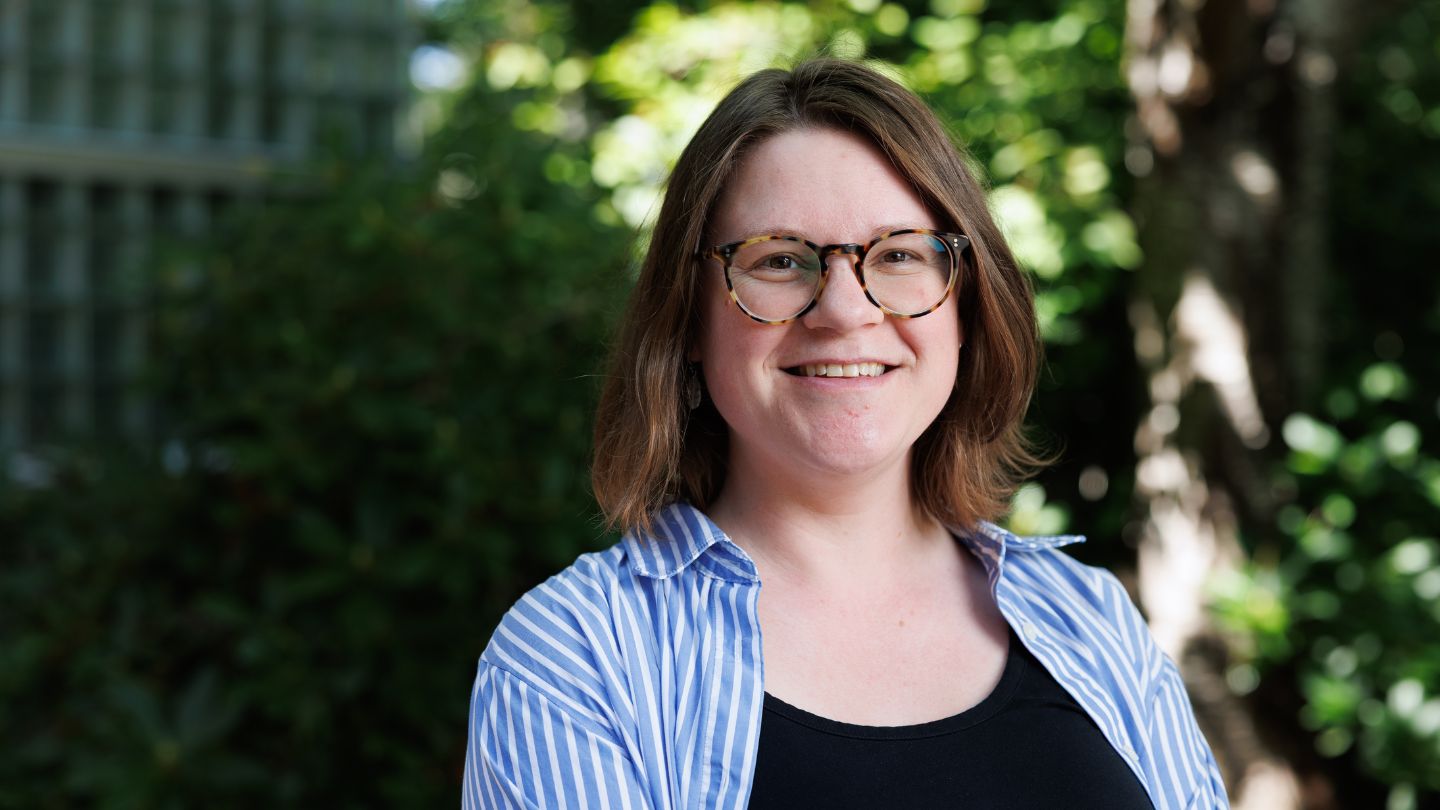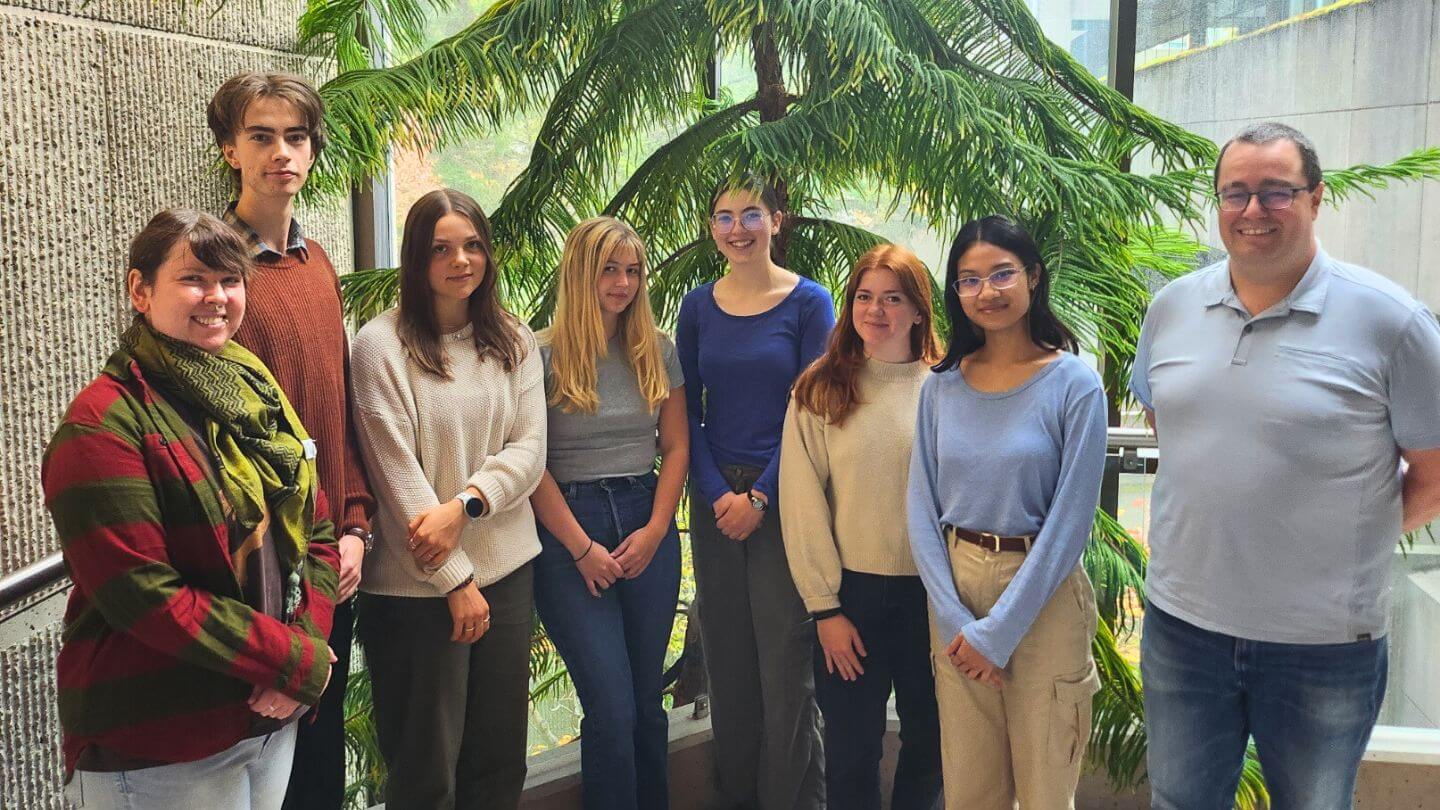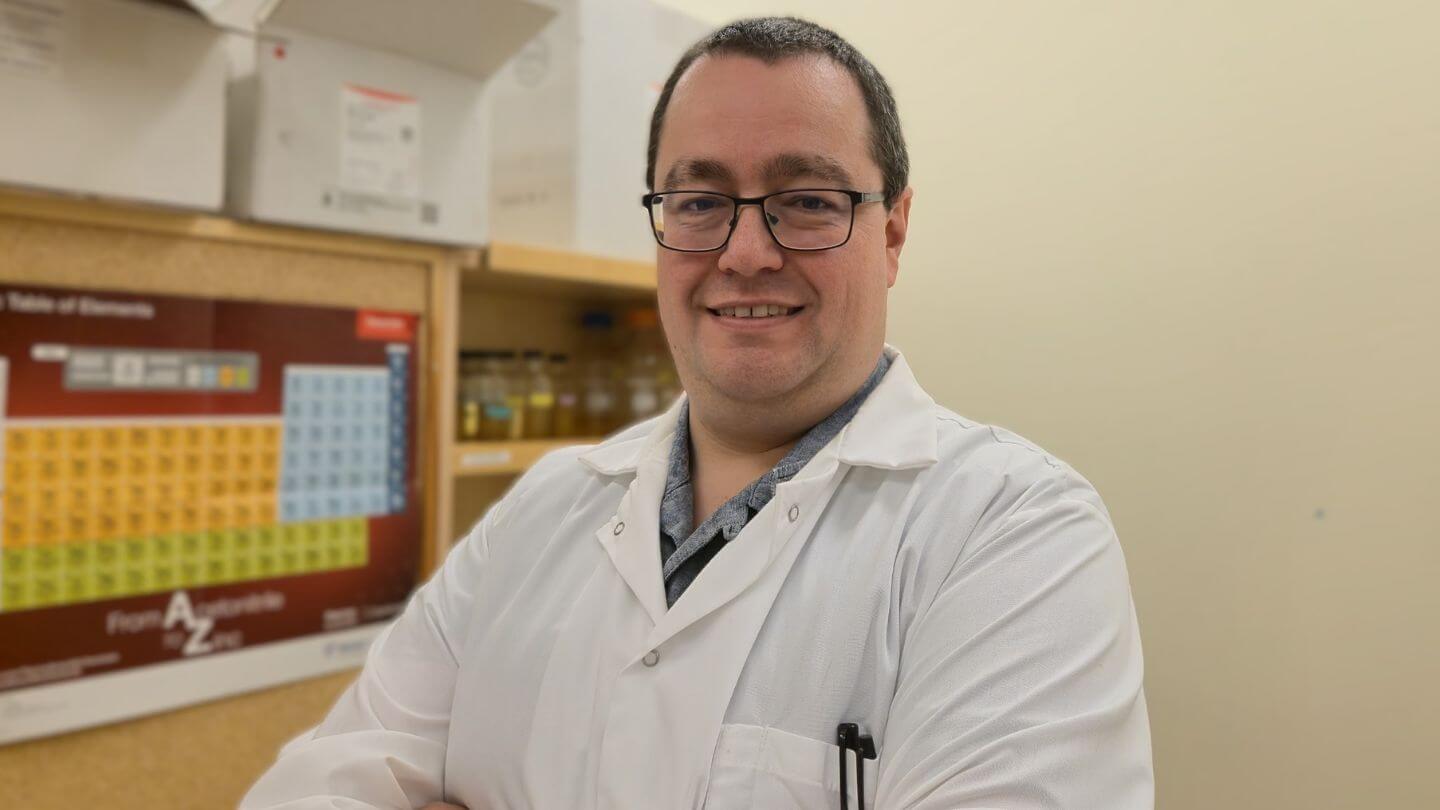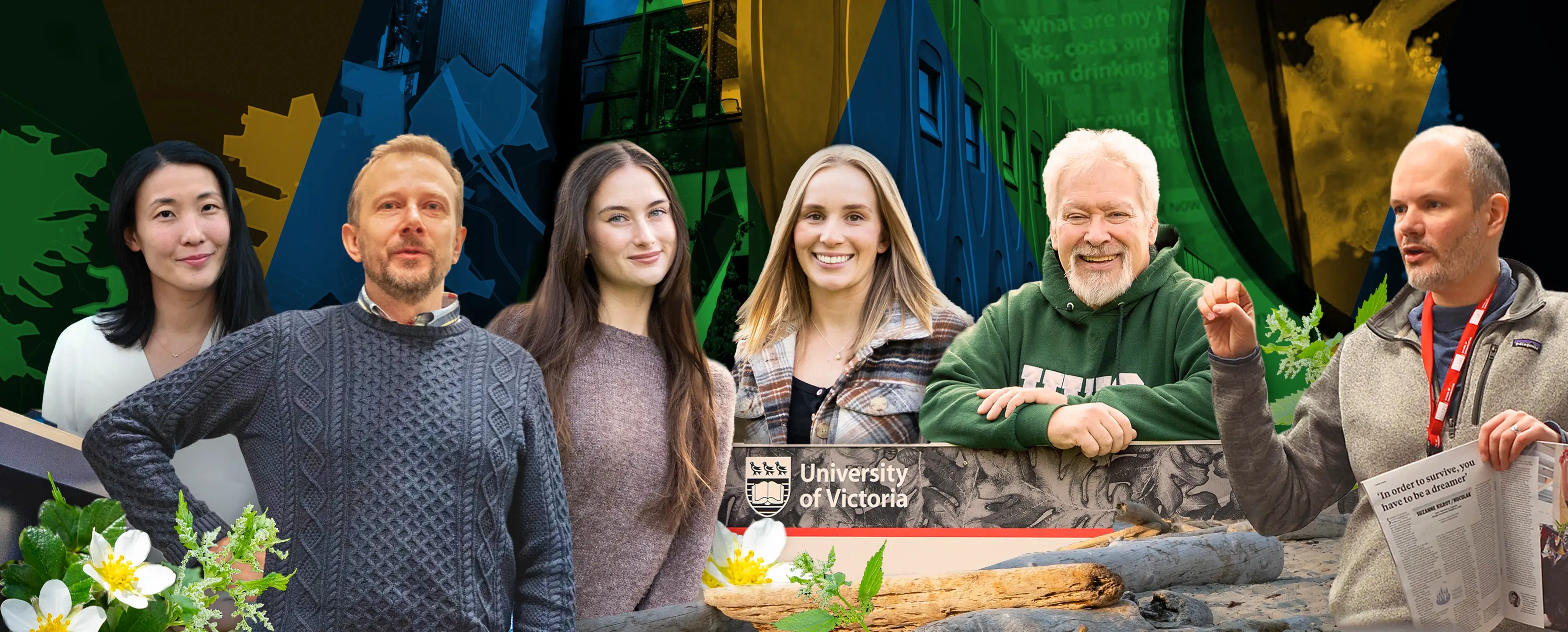Launching a successful health research career in Canada can be tough. For many early career researchers, the juggle of undergraduate teaching, graduate supervision, admin, clinical practice, research, and often childcare, can be overwhelming and isolating.
The heavy workload leaves little time for learning how to craft the complex, nuanced, grant applications that underpin a robust and impactful research program.
This is why the University of Victoria (UVic) created THRIVE, a dedicated mentorship program to train early career health researchers in the art of writing—and winning—prestigious, highly competitive, grants.
“THRIVE is an investment in the future of health researchers at the university,” says Kelli Stajduhar, a professor in UVic’s School of Nursing and leader of the second iteration of the program, within the university’s Institute on Aging and Lifelong Health.
A career catapult

“It’s honestly wild,” says Allie Slemon, a recent THRIVE graduate, a registered nurse and an assistant professor in the UVic School of Nursing, who has pulled off a remarkable trio of prestigious grant successes this year.
“I truly feel like my career has been catapulted multiple years ahead. I’m three or five years ahead of where I would have been. I credit THRIVE for a lot of it because the common denominator is writing strong grants that were selected by funding committees.”
In July, Slemon won a coveted Canadian Institute of Health Research (CIHR) Project Grant of $1.02 million, along with colleagues Ingrid Handlovsky and Nathan Lachowsky. The grant will fund a study of a novel 2S/LGBTQIA+ liaison nurse role that has recently launched in British Columbia, to help queer and trans folks navigate the health-care system safely.
“This liaison nurse role is the first of its kind in Canada,” says Slemon. “We are kind of in shock, that we have this opportunity to research it, in real time, as it unfolds in the health-care system.
“The grant will allow us to help mobilize the expansion of this role in BC—to augment it and help more people.”
Slemon also won a prestigious Michael Smith Health Research BC Scholar Award, a salary award of $450,000 over five years, to support a research program that enhances equity in nursing. And she received a $75,000 Insight Development Grant from the Social Science and Humanities Research Council (SSHRC) to conceptualize and enact social justice in nursing.
“Before, I was approaching grants in a different way,” says Slemon. “THRIVE really gave me insight into the approach, the internal workings, the strategy.”
Mentorship from senior faculty

The focus of THRIVE is to support participants through the process of writing a CIHR Project Grant application. Participants meet biweekly, receive training in the art of grant-writing and mentorship from a senior researcher who helps them navigate the complexities of this competition. They also receive focused feedback from all nine senior faculty mentors, as well as peer review from their cohort, and participate in mock review panels.
“A CIHR Project Grant is definitely one of the bigger beasts to write,” says Theone Patterson, associate professor of psychology, and a THRIVE mentor during the second iteration of the program. “I definitely saw the growth, in terms of how people were writing, and how they were gauging their writing to the audience they were writing for.”
But the benefits trickle far beyond this specific competition. “The mentorship, it teaches you how to be persuasive, how to write confidently,” says Megan Ames, associate professor of psychology, and another THRIVE participant. “It bleeds into other grant applications.”
Ames recently won a five-year, $450,000 Scholar Award from Health Research BC to study the importance of health behaviors such as sleep, exercise, and screen time on the youth mental health crisis. She credits the THRIVE training for raising her profile as an up-and-coming health researcher, as well as helping her carve out time for grant writing, and for strengthening this Health Research BC application.
And THRIVE is not just about supporting individual successes. “If we equip early career researchers with the skills and confidence to write competitive high-quality grants,” says Stajduhar, “we strengthen the innovation, talent, and impact of our research community for years to come.”
Interdisciplinary connections

“I’ve learned to craft a message that can translate to scientists who aren’t even remotely in the same field as me,” says Stephen Tuffs, another recent THRIVE participant and assistant professor of biochemistry and microbiology at UVic.
Tuffs is a bench scientist, who studies how Staphylococcus aureus—a bacteria found in hospitals that causes skin and bloodstream infections—triggers and uses inflammatory mechanisms in human hosts. He is the recipient of a prestigious Discovery Grant from the Natural Sciences and Engineering Research Council of Canada (NSERC).
“For me, as the only basic science health researcher in the cohort, I got exposed to a lot of science I’m not usually engaged with, which was very rewarding in itself,” says Tuffs.
“It was a really positive way of creating networks across the university. And now I have a group of mentors I know I can always rely on.”
The trickle-down effect
Tuffs teaches a writing course for graduate students in microbiology and biochemistry. He passes the wisdom he has received in THRIVE—on everything from grant-writing mechanics to discussions of sex and gender, and equity, diversity and inclusion conceptualizations—directly to these students.
Tuffs also used the $10,000 research stipend offered by THRIVE to fund a co-op position, providing an undergraduate student with valuable exposure and experience within his lab. The student continues to work there, with increasing responsibilities.
For Slemon too, the benefits of the program trickle out widely to students and to research collaborators.
“To give an example, we had this one grant-writing session that focused on integrating ethos, logos, and pathos,” says Slemon. “On my research team we write grants collectively. Now we are literally weaving through ethos, logos, and pathos the whole time.
“And we have completely changed how we begin grants. Now we open with an emotion-driven statement, and we paint these little vignettes of patient experiences, and then kind of move on to the nuts and bolts of the grant.”
Building career resilience
In an extremely competitive health research funding climate, the focus of THRIVE is not just on instant success. The focus is on giving and receiving feedback, improving and polishing the application, building the stamina and confidence to keep trying.
“We’re constantly talking about how you’re unlikely to get your CIHR Project Grant on the first try,” says Paterson. “This is about building resilience. It’s more of a marathon. A long road.”
And THRIVE doesn’t really end after the grants are submitted. The relationships, the mentorship, the collaborations, the idea sharing continues.
“THRIVE takes that spirit of UVic, that’s so collaborative and, you know, supportive, and formalizes it so that we all plan to dedicate our time to one another,” says Slemon. “Senior faculty are supporting early career faculty and we’re all peer reviewing each other’s grants.
“I don’t mean to be cheesy but THRIVE really embodies what I came to UVic for. This collaborative, rather than competitive, approach to research.”



